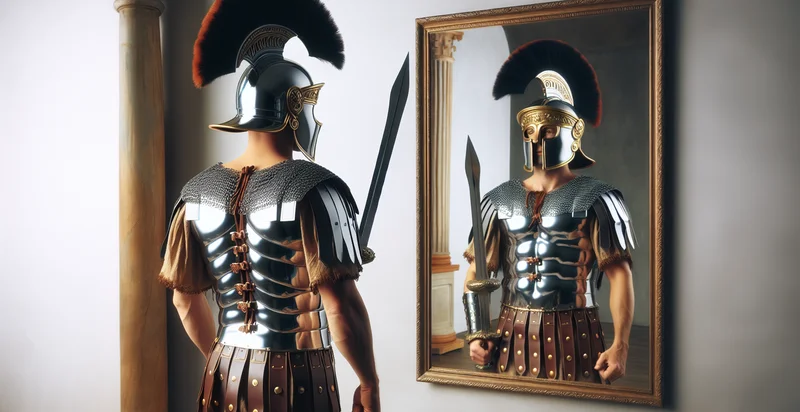Identify which character from Gladiator you look like
using AI
Below is a free classifier to identify which character from Gladiator you look like. Just upload your image, and our AI will predict which character you look like - in just seconds.

Contact us for API access
Or, use Nyckel to build highly-accurate custom classifiers in just minutes. No PhD required.
Get started
import nyckel
credentials = nyckel.Credentials("YOUR_CLIENT_ID", "YOUR_CLIENT_SECRET")
nyckel.invoke("which-character-from-gladiator-you-look-like", "your_image_url", credentials)
fetch('https://www.nyckel.com/v1/functions/which-character-from-gladiator-you-look-like/invoke', {
method: 'POST',
headers: {
'Authorization': 'Bearer ' + 'YOUR_BEARER_TOKEN',
'Content-Type': 'application/json',
},
body: JSON.stringify(
{"data": "your_image_url"}
)
})
.then(response => response.json())
.then(data => console.log(data));
curl -X POST \
-H "Content-Type: application/json" \
-H "Authorization: Bearer YOUR_BEARER_TOKEN" \
-d '{"data": "your_image_url"}' \
https://www.nyckel.com/v1/functions/which-character-from-gladiator-you-look-like/invoke
How this classifier works
To start, upload your image. Our AI tool will then predict which character you look like.
This pretrained image model uses a Nyckel-created dataset and has 20 labels, including Claudia, Falco, Juba, Vala, Maximus, Gracchus, Marcus Aurelius, Livius, Antoninus and Gaius.
We'll also show a confidence score (the higher the number, the more confident the AI model is around which character you look like).
Whether you're just curious or building which character from Gladiator you look like detection into your application, we hope our classifier proves helpful.
Related Classifiers
Need to identify which character from Gladiator you look like at scale?
Get API or Zapier access to this classifier for free. It's perfect for:
- Personalized Marketing Campaigns: Businesses could utilize the false image classification function to create targeted marketing campaigns based on users perceived likeness to characters from the "Gladiator" movie. By engaging users in a fun quiz, brands can collect valuable demographic data while promoting products that align with the personality traits associated with their identified character.
- Social Media Engagement Tool: This function can be implemented as an interactive feature on social media platforms. Users can share their results, fostering community engagement and sparking discussions about the characters, ultimately increasing user traffic and activity on the platform.
- Event Promotion and Theming: Event organizers can leverage this function to promote themed events, such as "Gladiator" movie nights or cosplay gatherings. Attendees could find out which character they resemble and come dressed accordingly, enhancing the experience and boosting attendance through personalized engagement.
- Gamification for Fitness Apps: Fitness applications could incorporate this technology as a gamification element, where users can set fitness goals that allow them to "transform" into their chosen characters from "Gladiator." This could enhance motivation by tying physical achievements to a recognizable character, making workouts more engaging.
- Character-Based Merchandise Sales: Online retailers could integrate this function into their e-commerce platforms to recommend merchandise based on users' identified characters. This approach can drive sales by providing fans with personalized product suggestions, enhancing the shopping experience.
- Creative Content Generation: Content creators could use this tool to develop narrative-driven content centered around the characters from "Gladiator." By including user likeness identifiers, creators could form unique stories or videos that resonate personally with viewers, ultimately increasing engagement and attraction.
- Psychological and Personality Assessments: Companies in the HR or psychological evaluation sectors could use this classification as a lighthearted tool for assessing team dynamics. By understanding which character traits users relate to, organizations can inform team-building practices or workshops aimed at enhancing workplace culture.


